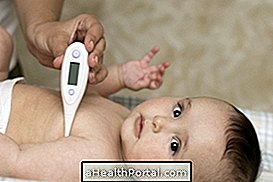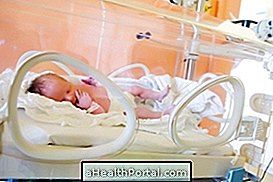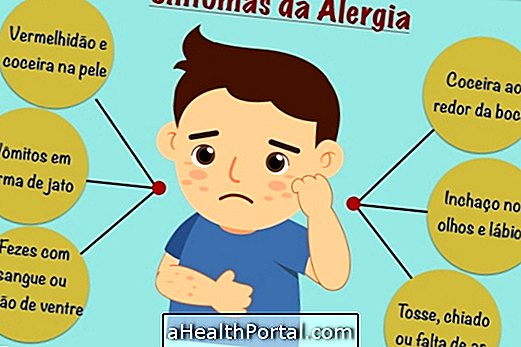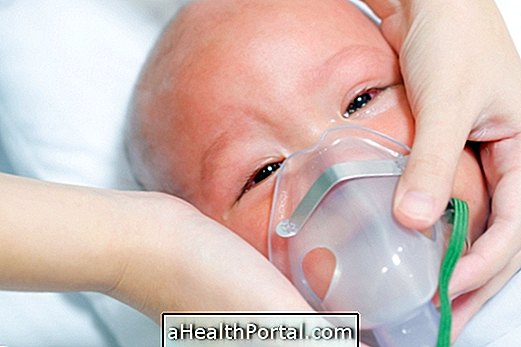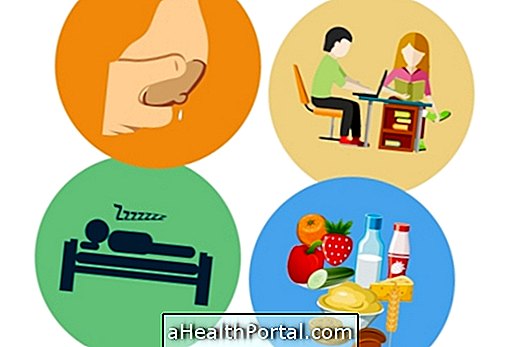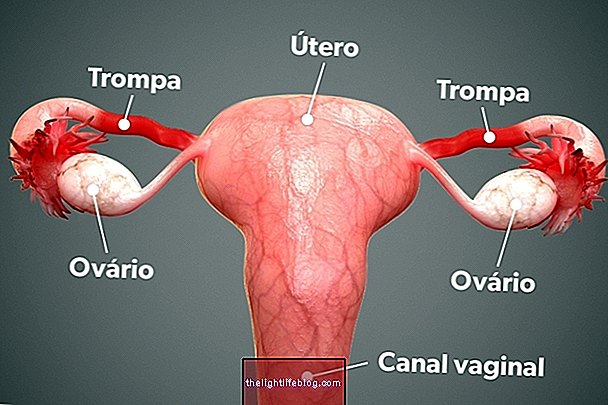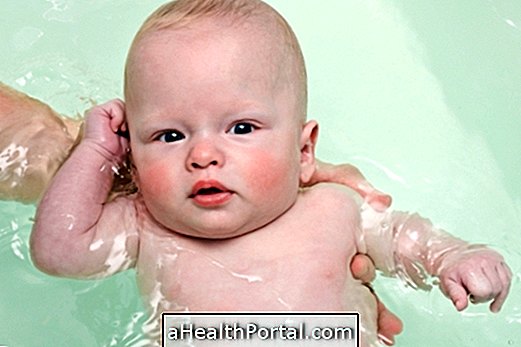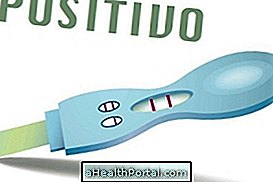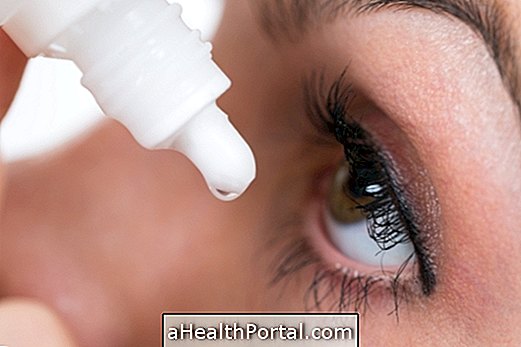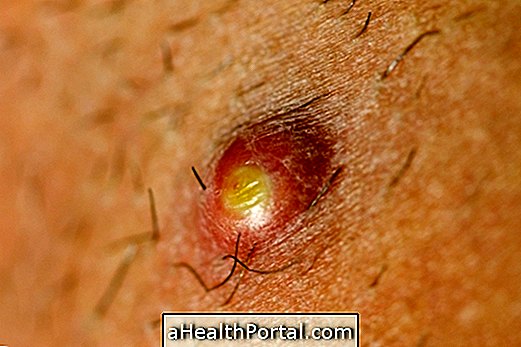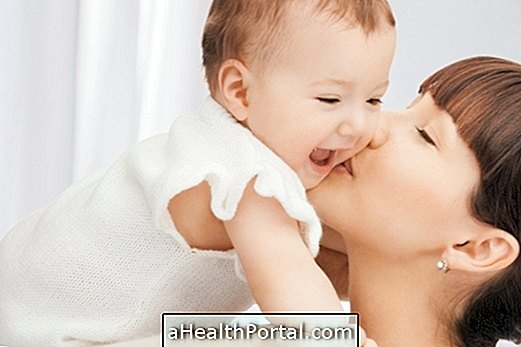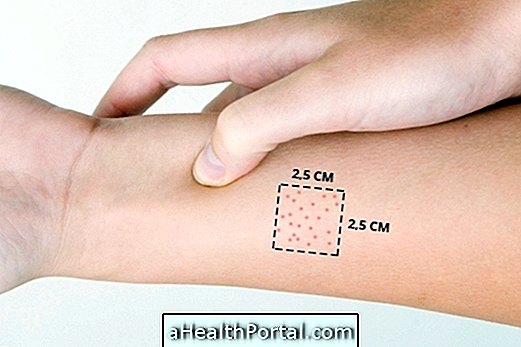To prevent accidents at home it is necessary for parents to take certain precautions to protect children such as putting protectors in the outlets, because even though it seems safe that the house is safe, it may contain certain hazards that can cause problems such as choking or life-threatening of children.
It is also important to check if the toys you have at home are indicated for your child's age because some toys are manufactured at low cost, being dangerous and can cause suffocation or intoxication. See: How to know if the toy is safe for your child.
Some general safety measures that parents, caregivers, grandparents, uncles or other family members must take while having a child under the age of 5 at home include:
How to avoid accidents in the kitchen
To avoid accidents in the kitchen is very important:
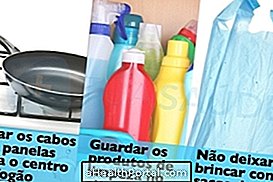

- Leave the cables of the pots facing the center of the stove, so as not to touch and spill on the child;
- Keep cleaning products on high, never within reach of children, so that they do not drink their contents;
- Do not let your child play with plastic bags because they can cause choking by putting them on the head, for example.
In addition, it should not be made with the child in the kitchen because it can disrupt the mother or other family member and can burn the child.
How to avoid accidents in the room
To avoid accidents with children in the room, you should:
- Put a special protector in the sockets so children do not put their fingers;
- Keep the sofas, chairs and armchairs away from the windows so that the child does not lean on the window;
- Place a railing to prevent the child from going to high places, such as stairs, which may cause fall.
In addition, whenever possible, you should be watching the child because the child's curiosity may cause them to move around and drop some heavy object on the child.


How to avoid accidents in the bathroom
The bathroom is a place with some dangers and, to avoid accidents, one should:
- Close the lid of the pot, so that the child does not play with the water in the pot;
- Use non-slip mats to prevent falls;
- Put protectors in the drawers to be always closed and so that the child does not hold the little fingers, nor go up in the drawers;
- Put only 20 to 20 cm of water so the child does not drown and if possible keep watch;
In addition, cleaning products, creams and cosmetics should be placed in high and inaccessible locations so the child does not become intoxicated.
How to avoid accidents in the bedroom
The child's bedroom may also have some dangers and to avoid them should:
[grad4]
- Do not leave the child alone in the muda faults, as it can roll and fall;
- Use closets firmly attached to the wall so they do not fall if the child wants to 'climb';
- Be aware of objects you leave on the bedside table or at the head of the bed because small objects can be easily swallowed;
- Always lock the window and access to the balcony.
In addition to all these care, it is important not to leave the child alone at any time, being aware of everything she is doing and therefore having an electronic baby sitter with a camera in the room is a good way to check if the baby is fine without having to enter the room and disrupt the baby's sleep.
Objects that can be dangerous to the child
If your child is taking any of the following listed substances, take it to the emergency room, such as:
Perfume, Deodorant, After-shave lotion, Fabric softeners, Hair spray | High windows |
Medicaments, Boricated water, Ethyl alcohol, Naphthalene, Neocid; | Wires and electrical outlets |
Insecticides, Kerosene | Knives or sharp objects |
Hair paint, fabric paint or marking objects; | Very small objects |
| Cleaning products | Objects with tips and height of height of the child |
Some of these goals can cause choking, poisoning or minor injuries and for this, it is important how to act. Find out what to do in: First Aid for the 8 Most Common Domestic Accidents
